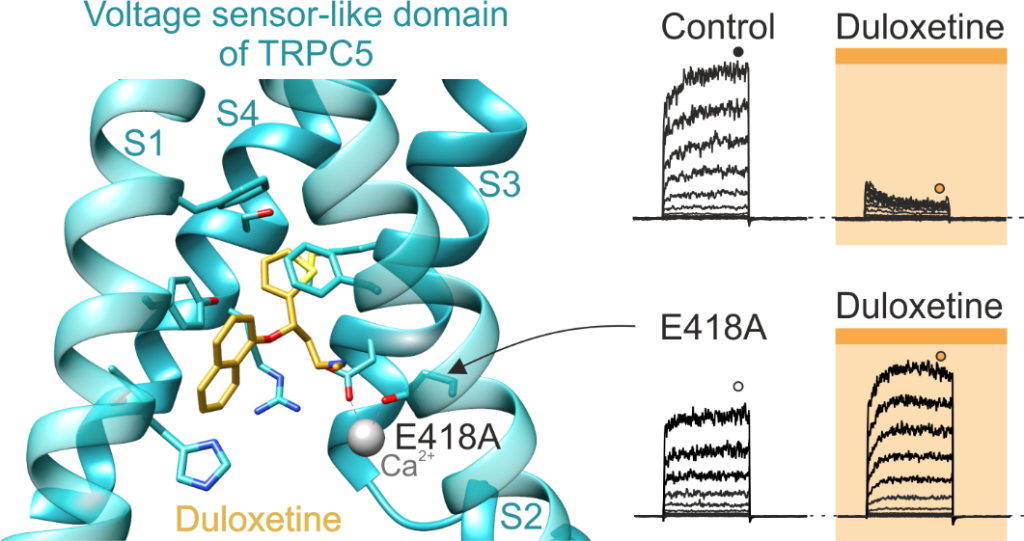Despite great advances in medicine, treatment options for pain states associated with diabetes or chemotherapy-induced neuropathy are still limited. These types of neuropathies are accompanied by cold-induced pain that is very difficult to manage in clinical practice. In fact, the only drug that has successfully undergone clinical trials and demonstrated efficacy for this type of pain so far is duloxetine. This drug is superior to other antidepressants with a similar mechanism of action at managing painful neuropathies, but it is not known why. Interestingly, it has recently been shown that the cold-sensitive TRPC5 ion channel is expressed in human sensory neurons and that inhibition of its activity relieves persistent pain, including neuropathic cold pain.
In our study we asked whether the TRPC5 channel is modulated by duloxetine and may contribute to its analgesic effect. Our electrophysiological measurements showed that TRPC5 channel activity is strongly suppressed by duloxetine. We performed molecular docking and molecular dynamic simulations that identified a potential biding site for duloxetine. Subsequent point mutagenesis validated that the duloxetine molecule resides in a well-known biding pocket on the intracellular side of the TRPC5 transmembrane domain. Slight manipulation of the shape and electrostatic of the binding pocket environment (replacing the amino acid glutamate 418 with alanine) caused a complete loss of the duloxetine effect on voltage-evoked TRPC5 activity. Our results suggest that TRPC5 is a previously unrecognised target for a commonly used, highly effective drug against severe forms of pain. Furthermore, the finding that this TRPC5 inhibitor is widely used and well tolerated provides a scaffold for new pain treatment strategies.
Zimova L, Ptakova A, Mitro M, Krusek J,Vlachova V: Activity dependent inhibition of TRPC1/4/5 channels by duloxetine involves voltage sensor-like domain, Biomedicine & Pharmacotherapy. Roc. 152, August 2022, 113262, IF = 7,419, DOI


